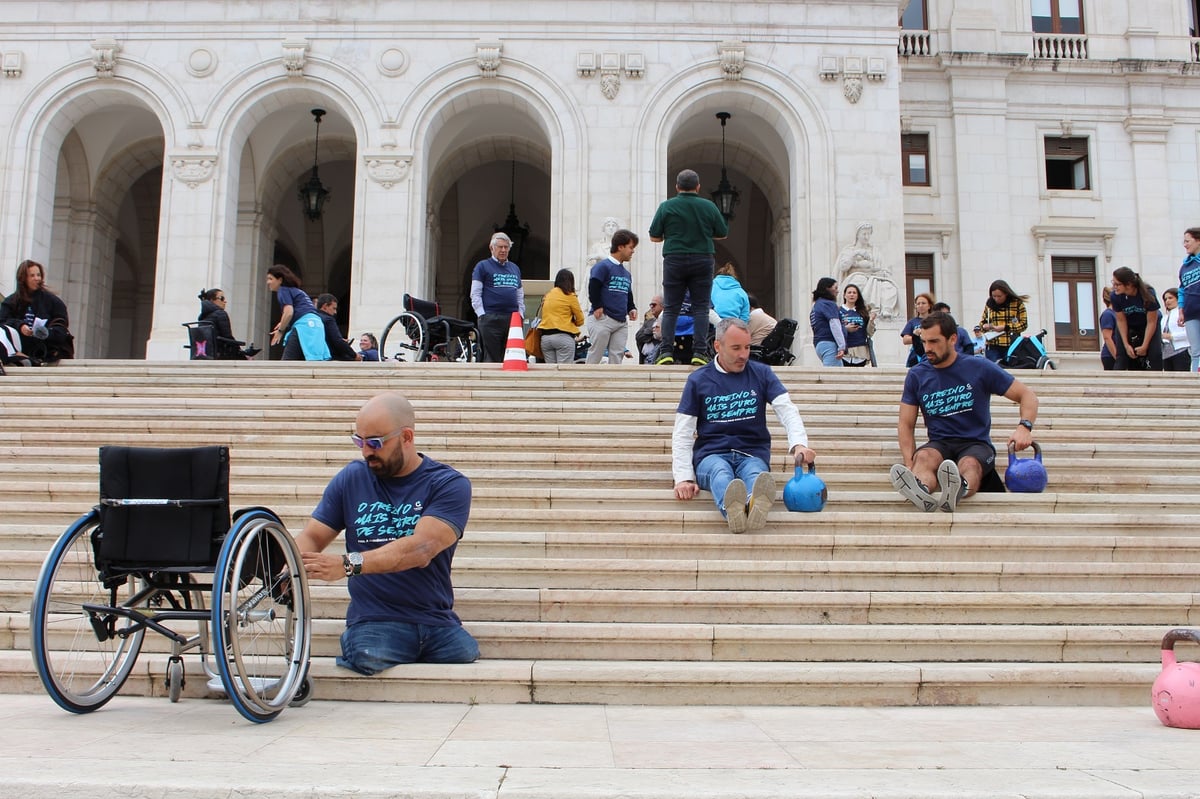More than 400 million voters are being invited to cast their ballot in the European elections this June, but for the 100 million people with disabilities living in the EU, the electoral process is riddled with barriers that lead to unequal treatment and discrimination during the electoral process.
People with disabilities face different challenges to being allowed to vote, to being able to vote, to understanding how to vote, to knowing who to vote for, and even to being allowed to vote at all, yet we are disproportionately affected by the outcomes of those same votes.
The good news is that, if there is political will, there are ways to break down these barriers and deeply involve citizens with disabilities in the European project. Disability Europe proposes four concrete areas that European leaders should work on to ensure that disabled voters are included and can participate in the European project: first, enable us to vote; second, inform us; third, propose concrete actions to improve our lives; and finally, give us the chance to vote.
First, governments need to ensure that people with disabilities have the right to exercise their right to vote. Six EU Member States – Bulgaria, Estonia, Cyprus, Greece, Romania and Poland – do not fully recognise this right for people with disabilities who have guardianship.
If disabled voters believe in the EU, and in the EU’s claims to be the defender of human rights and democracy, these countries must change. They need to change their laws. This is not unprecedented. We are simply asking for equality. Indeed, France, Germany and Spain changed their laws before the 2019 European elections. Since then, Luxembourg and Slovenia have also changed their laws, most recently in Slovenia in February 2024.
We also need to be able to exercise our right to vote. For example, wheelchair users like my colleague Pirko are often unable to cast their vote in secret because polling stations in Finland do not have accessible voting booths. Alejandro and Loredana, who are visually impaired, suffer from a lack of accessible voting machines in Belgium.
Secondly, people with disabilities need to know how to vote and be informed about the political parties. People like Alexandre and Lidia are not well informed because there is no sign language interpreter or subtitles during debates. For people like Tamara, the lack of accessible information is a big obstacle.
Election authorities often do not provide sufficient accessible information on how to vote, and political parties do not share election manifestos in an understandable way, so people with disabilities have to make extra effort to know what to do.
The European Disability Movement supports with solutions such as checklists to make campaigns accessible, but authorities, especially political parties, need to take advantage of these solutions.
However, the right to a free and informed vote is only half the solution to motivate citizens with disabilities to take part in the European project.
It’s not just about voting
For the other half, the EU must live out its motto of “unity in diversity” and guarantee an inclusive future for all its citizens.
One way is to enact laws and policies that promote the rights of people with disabilities.
The EU has a good start with the European Disability Card, a recently agreed law that establishes mutual recognition of disabilities when traveling within the EU, respecting a long-standing demand from the movement to allow mutual recognition of disabilities between EU countries (although the card only works in limited circumstances).
This is just the start, but people with disabilities need more than that. We need to feel part of the European project, as full citizens of the European Union. This means being able to emigrate, work and live abroad and have ready access to the support we need. It also means being able to collect disability benefits if we move to another EU country. But more than that, it means knowing that the EU is actively working to improve our lives.
The European Disability Movement has always provided the answer. EDF’s manifesto for the 2024 European elections, “Building an inclusive future for disabled people in the EU”, includes specific demands such as reviewing passenger rights regulations to improve their ability to travel without discrimination, and creating a Disability Employment and Skills Guarantee to facilitate access to quality employment. It also makes an important call to ensure that women and girls with disabilities, as well as people belonging to other marginalized groups, are not left behind in the effort.
Right to run
Finally, the disability community needs to see themselves reflected in their elected representatives, but to do that they need equal opportunity to run for office and be elected, and that starts with having the right to run for office.
Only ten countries allow all people with disabilities to run for office without restrictions: Austria, Denmark, Germany, Spain, Croatia, Italy, the Netherlands, Sweden, Luxembourg and Slovenia.
And even if they are able to run, not only do they face “double the challenges” due to inaccessible societies making campaigning more difficult, but they also face “double the mental burden” due to prejudice, harassment and discrimination — and for women with disabilities who run for office, the burden is more than doubled.
EU citizens with disabilities deserve to be part of the European project. We deserve to be fully included in this project. And we can participate. We have provided the solutions. Now, if leaders truly want a European Union for all its citizens, they need to make our demands a reality.

